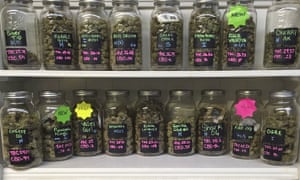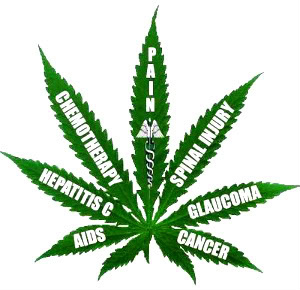1. CannabisTech: Commercialization Of Hemp-Based Bioplastics
True commercialization of hemp-based plastics could be just around the corner in North America.
Hemp is experiencing a revolution, its popularity as a raw material has exploded in recent years thanks to deregulation of hemp in the United States and the growing acceptance of the cannabis sativa plant family as a whole.
An eco-friendly focused packaging company out of Alaska seems set to take the world by storm in 2018 with the launch of its hemp-based plastics and packaging production facility.
According to Kevin Tubbs, president of the Alaskan based Best Practices Packaging (BPP), “We’re commercializing hemp bioplastic for the first time in North American history.
We can produce virtually whatever the market demands,” and the demand for plastics has reached extraordinary levels in North America, to say the least.
Have We Reached Peak Plastic?
If there was ever a time for the introduction of large-scale, bio-friendly plastics manufacturing, generated from renewable resources like hemp, it’s now.
As of 2015, the world had produced 6300 million metric tons of plastics, of which only nine percent had ever reached a recycling plant.
Nearly 80 percent of these plastics simply ended up in the oceans or the natural environment.
Experts predict that by 2050 if the status quo of plastic consumption remains unchanged, the natural environment will carry upwards of 12,000 million metric tons of the stuff.
.jpg)
As consumers slowly wake up to the crisis of plastics in our environment, there has been a slow rise in plastics recycling over the years, but not by much.
The rate of recycling growth grew on average by 0.7 percent per year between 1990 and 2014.
This less than one percent yearly increase in plastic recycling did little to the roughly 105 million metric tons of new primary plastics pumped out in 2015 alone.
The numbers, as presented by Geyer, Jambeck et al., in Science Advances paint a bleak picture.
Despite the obvious plastic based environmental catastrophe headed our way, the world just can’t seem to quit producing new plastics.
It’s an addiction.
Even if all plastics on the market today miraculously made it into our recycling bins tomorrow, recycling is really only a delay of the inevitable.
Eventually, all plastics reach the end of their useful lifespan and require some sort of disposal.
Enter Hemp Based Plastics
Because of societies pesky plastics addiction, innovations in biodegradable, renewable materials are a hot topic.
Part of the issue with eco-friendly alternatives to petrochemical plastics is the price difference.
Until very recently, renewable plastics just couldn’t keep up with the bargain basement prices of the oil industry.
Yet, BPP might have found a formula that works.
Through a unique and well-curated partnership spanning across North America, Tubbs of BPP believes he may have landed on a reliable, competitive solution to the pricy bioplastics currently in the North American market.
Best Practices Packaging has teamed up with the largest producers of nutritional hemp products in North America and the largest flexible packaging company in the USA to finally commercialize the hemp packaging and plastics industry on the continent.
Tubbs saw a need to reuse leftover hemp waste from the nutritional hemp side of the business, which was normally sold as cattle feed, and recycle it into a useable packaging for the nutritional products themselves.
Essentially he envisioned using leftover hemp from the nutritional hemp business into packaging for the nutritional hemp business?
A revolutionary idea.
According to Tubbs, the full-scale commercialization of the idea happened almost by accident, “Initially, my goal was simply to make enough hemp plastic so that we could wrap all of our nutritional products in ultra-green hemp containers.
The response to this idea was such a wealth of open arms, we started to grasp the gravity of our development.
Now, we see more clearly the future implications of our unique bioplastic.
We are prepared to commercialize it, offer a range of properties and blends as the market demands, and open this special bioplastic up to a world of new users.”
Relying primarily on hemp sourced in Canada, the capacity of BPP has already surpassed 50 million lbs (roughly 23,000 metric tons) each harvest.
They currently are working with hemp Polypropylene, and a hemp-based Poly Lactic Acid used in 3D printing machines, but they believe through further manipulations they can produce any plastic needed. In Tubb’s own words, he wants to see all companies, from “Lego to Lamborghinis” make the switch to bioplastics.
Article by JESSICA MCKEIL
Jessica McKeil is a freelance writer focused on the medical marijuana industry, from production methods to medicinal applications.
2. The Guardian: All eyes on Canada as first G7 nation prepares to make marijuana legal
From crime to health to business, Canada’s decision to legalize marijuana is a grand progressive experiment that promises to answer a host of questions.
When Canopy Growth opened its first cannabis factory in an old chocolate plant near Ottawa four years ago, it did so predicting a bright future.
Canada had already legalized medical marijuana, and Canopy predicted full legalization for recreational use to be legal.
What the company hadn’t predicted, however, was the sudden flood of foreign visitors.
Politicians and police authorities from Jamaica, Germany, Denmark, the Netherlands, Greece and Australia have all come knocking, as well as doctors from New Zealand, Brazil and Chile, along with groups of corporate investors and bankers – so many that Canopy now sometimes splits up the groups according to their birthdays.
“We knew we’d have to give a lot of tours, so we just cut a window into the wall,” said the company spokesman, Jordan Sinclair. “We put windows in all of the doors.”

Photograph: Bernard Weil/Toronto Star via Getty Images
Canada will be thrust even more directly under the international microscope on Thursday, when a vote in the Senate is expected to ratify Bill C-45, effectively making Canada the first G20 nation to legalize recreational marijuana.
“It’s going to be a bit of a science fiction experience for a while,” said Benedikt Fischer, an expert on substance use at Toronto’s biggest psychiatric hospital.
“It’s unique in the world, because it’s happening for the first time in a wealthy country.
It’s not like in the US, where there are these state experiments.
Most people kind of ignore Uruguay.
And so the world is really looking at this.”
Governments, researchers and business leaders around the world all have their own reasons for keeping tabs.
Legalisation could affect Canada’s crime patterns, health and countless other factors – but exactly how, no one yet knows.
Each Canadian province plans to roll out its newly legalized market in a slightly different way, creating about a dozen mini-laboratories within one massive test case.
Even places that have already taken the legalization plunge are hoping Canada will solve some mysteries.
After Colorado legalized marijuana five years ago, for example, organised crime reacted by ramping up supplies of “black tar heroin, opiates and harder drugs”, said Dr Larry Wolk, the state’s top public health official.
But Wolk says he is interested to watch that process unfold on a bigger scale in Canada, where the new law is expected to deal a much more significant blow to the black market.
Any new mix of illicit drugs in the country could have new effects on public health.
“What’s the impact of marijuana legalization on the opioid crisis?” he asked as an example.
“Does it actually act as a substitute so that people can get off opiates for chronic pain?
Is there a positive impact?
Or is it a negative impact, because as a result there’s more opiates in the black market? Is [pot] a gateway?
We don’t really have an answer.”
One delicate balance for Canadian authorities has been guessing at what kind of pricing will be low enough to eradicate illicit sales – yet not so low as to entice new users.
Canada’s finance minister, Bill Morneau, recently said the goal is “keeping cannabis out of the hands of kids and out of the black market. That means keeping the taxes low so we can actually get rid of the criminals in the system”.
One sign of success will be if Canada not only discourages underground sales, but converts illicit sellers to the new system, said Tim Boekhout van Solinge, a Dutch criminologist.
“What I am mainly following … is who will be the new legal growers, and whether authorities manage to get some of the illegal growers to become legal growers,” he said.

Photograph: Andrew Selsky/AP
Each country around the world that has debated whether to relax cannabis laws has had its own priority in mind: from generating revenue to discouraging drug cartels.
In Canada, the emphasis has been largely on public health.
Cannabis will be sold in fairly plain packaging, and usually through government-run boards that already control liquor sales.
“It won’t be like buying Budweiser or branded alcoholic products,” said Steve Rolles of Transform, a UK drug policy think-tank. “It’s going to be more like buying pharmaceuticals from a chemist.”
Still, it’s hard to know whether Canada, or any similar western country, will be able to stick to that public-health focus, he said.
“We have concerns … that the lessons from alcohol and tobacco wouldn’t be learned, and we might see overcommercialized markets in which profit-making entities would seek to encourage more use and could encourage risky consumption behaviours,” he said.
So far, Canada has allowed a few major players to dominate the industry, and their influence remains to be seen, said US marijuana industry expert Mark Kleiman.
“You don’t want to build up big vested interests that then resist any change,” he said. “If you have commercial industry in cannabis, they’re going to end up writing the laws.”
For epidemiologists, Canada will provide the best-ever data sets on cannabis use.
Colorado’s health results have been encouraging, said Wolk.
But overall, researchers lack solid data about cannabis use.
Some key questions include addiction levels, how cannabis affects mental health, and effects on young people, said Israeli scientist Raphael Mechoulam, often called the “grandfather” of cannabis research.
“About 10% of the users may be addicted – less than alcohol or tobacco,” he said.
“Some users, who are already prone to schizophrenia, may get the disease earlier.”
He said he is also keeping an eye on whether heavy use by young people may affect their central nervous system.
Another current Canadian health debate is how many people will be light, casual cannabis users, and how many will be heavy users.
The government still must decide how to approach products that are “very potent” in THC, the psychoactive compound in cannabis, said Mark Ware, a drug researcher and pain specialist who helped lead Canada’s federal taskforce advising the new legislation.
Black-market sellers have produced increasingly strong concentrates, he said.
“Those have not been the subject of studies up until recently, so the question of whether to regulate those, allow them in whatever context, and then be able to study their impacts on health, that would be very important,” he said. But “once they’re out there, it’s very hard to put them back in the box again”.
Canadian police, meanwhile, will grapple with how to crack down on cannabis-impaired driving.
That’s already a struggle around the world, regardless of marijuana’s legality, said Rolles.
But it’s much more difficult to measure impairment from cannabis than from alcohol, and enforcing a legal limit will prove tricky.
Meanwhile, many investors have already made huge profits from cannabis stocks, and a big question for them is whether the bubble bursts – or the value keeps rising.
“They’re waiting to see if the sky’s going to fall,” said Sinclair of Canopy. One of about 100 Canadian legal producers of medical cannabis, the company owns a third of the medical market, began trading on the Toronto stock exchange in 2016 and last month became the only cannabis producer on the New York stock exchange.
“[Investors] are waiting to see if all the stigma and all the demonisation of this product that’s built up in 90 years of prohibition is true,” Sinclair said. “It’s on us to demonstrate that it’s not.”
Article by Selena Ross in Montreal
3. New Cannabis Ventures: Canadian Clinic Operator to Launch Compass Australia
Compass Cannabis Clinics, is pleased to announce that it has entered into a letter of intent with Dr. Teresa Towpik which will signal the launch of its operations in Australia under a joint venture entity to be known as Compass Australia.
Dr. Towpik is a global leading cannabis expert and physician.
She has been a general practitioner in Australia since 1993, where Dr. Towpik has become a leading advocate for patient access to medicinal cannabis since it became legalized in Australia in 2016.
Dr. Towpik continues to play an important role in prescribing medicinal cannabis while the process for patient access continues to improve in Australia.
She is also the founder of MediHuanna, an organization that provides science-based medicinal cannabis education for physicians and health professionals through the comprehensive curriculum that she developed. The joint venture operation will also be supported with the addition of Dr. Towpik as Chief Medical Officer and a director of Compass Australia, and MediHuanna’s Managing Director Paul Bulkiewicz as a director of Compass Australia.
Mr. Bulkiewicz brings a wealth of knowledge in cannabis education and is actively engaged in the creation of physician-focused and accredited curriculum highlighting the role of cannabis in healthcare.

In response to Australia’s growing need for physician and patient education, Dr. Towpik’s curriculum focuses on the development of theoretical and practical skills for physicians.
She strongly believes in working with a network of ethical growers, manufacturers, pharmacists, and health professionals across Australia, in an effort to create an allied industry that utilizes an integrative approach to supporting patients.
Dr. Towpik sees cannabis as a therapeutic agent that has huge potential for general practice, and specifically for the management of chronic debilitating pain.With our values being so aligned in patient care and advocacy, it was a natural fit for us to partner with Dr. Towpik as our Chief Medical Officer and Mr. Bulkiewicz as a board member.
Having recently visited Australia to learn more about their approach to legalize cannabis in the country, we believe that there is a great opportunity for the Compass business model to thrive there.
Dave Martyn, President of Compass
Compass intends on launching their brand and business model in the Australian market by the end of 2018.
About Compass:
Compass Cannabis is a medical cannabis consultation company whose core business is focused on providing educational and consultation services to Canadians who are able to obtain cannabis from a licensed producer under Canada’s Access to Cannabis for Medical Purposes Regulations.
Compass Cannabis has forty clinics that are now open or confirmed across Canada, and was recently selected by the Saskatchewan Liquor and Gaming Authority as a cannabis retailer for Weyburn, SK.
The retail license is through their subsidiary company, 10537888 Canada Ltd. and in partnership with Starbuds Colorado, one of the leading multiple state cannabis retailers in the United States.
With a rapidly growing patient base currently being served and an aggressive real estate acquisition strategy, the Company is poised to be one of the largest marijuana organizations in Canada.
